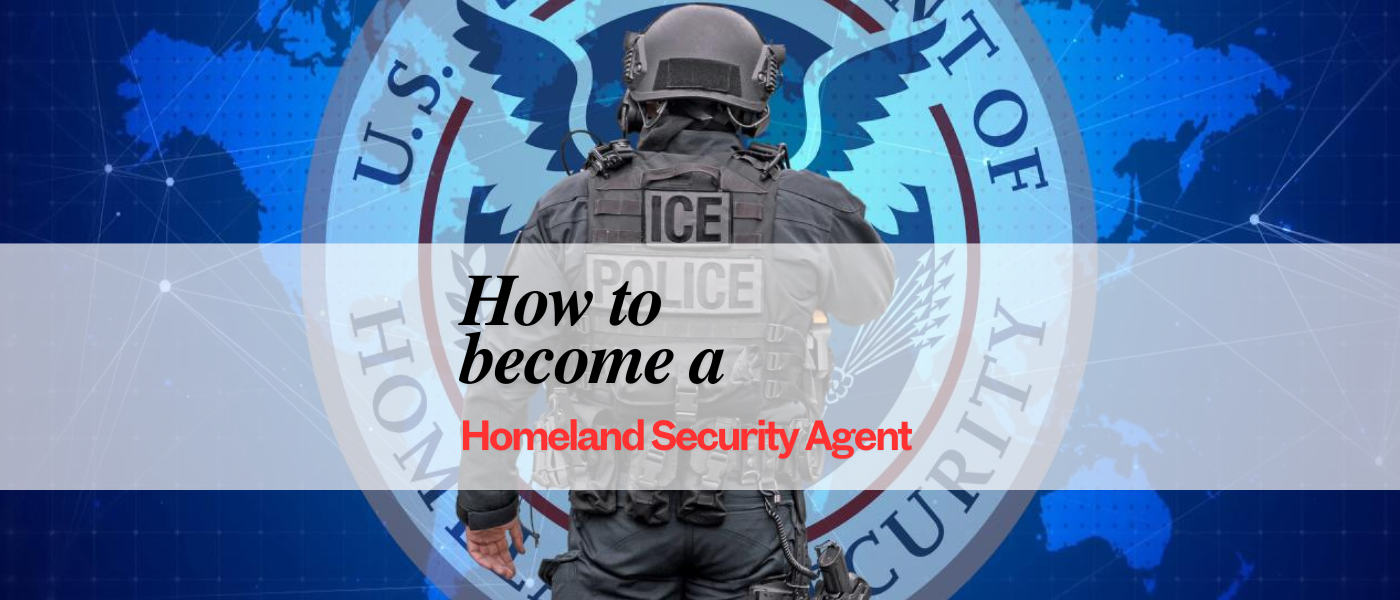The Department of Homeland Security (DHS) was originally established to protect the United States against terrorism. Nonetheless, in the 20 years since it was founded, it has evolved into much more than just that. In addition to protecting critical infrastructure, DHS specialists investigate cybercrime and provide other services essential to national security.
There is a wide range of jobs available in homeland security, including airport security and border patrol, as well as cybersecurity and immigration services. With a budget of $107.9 billion, DHS is the third-largest Cabinet department after the Defense Department and the Department of Veterans Affairs. Furthermore, many homeland security-related positions are available through local, state, and federal agencies. Here is everything there is to know regarding homeland security jobs and career paths if you are thinking of pursuing one.
Key Takeaways
What is the mission of Homeland Security?
Homeland Security agents protect the U.S. from terrorism, cybercrime, border threats, natural disasters, and safeguard critical infrastructure.
What careers are available in Homeland Security?
DHS offers jobs in border patrol, immigration enforcement, cybersecurity, emergency management, airport security, federal air marshals, intelligence analysis, and the U.S. Secret Service.
What education and age requirements apply?
Most roles require U.S. citizenship, security clearance, and a bachelor’s degree in criminal justice, homeland security, or cybersecurity. Federal law enforcement positions typically require applicants to be 18–37 years old, with veteran exceptions up to 40.
Can you work in Homeland Security with no experience?
Yes. Entry-level jobs like Transportation Security Officer (TSO) or administrative support positions accept applicants without prior experience, while specialized careers require education and fieldwork.
What skills are important for Homeland Security agents?
Analytical thinking, communication, problem-solving, physical fitness, teamwork, and cybersecurity expertise are essential for success.
How do you apply for Homeland Security jobs?
Apply through USAJOBS.gov, DHS Careers, ICE or USCIS Careers, or job portals like Indeed and ClearanceJobs.
What Do Homeland Security Agents Do?
Agents and officers working for Homeland Security are responsible for protecting the country from threats such as terrorism and natural disasters. The mission of this organization is to protect the borders of the nation, the transportation system, and the critical infrastructure. Among their principal responsibilities is to safeguard citizens, prevent illegal activities, and respond to crises as they arise.
Numerous government agencies employ homeland security officers, such as Customs and Border Protection (CBP), the Federal Emergency Management Agency (FEMA), and the Department of Homeland Security (DHS). Based on the situation, these officers might be stationed at border crossings or airports, where they oversee security procedures and work to reduce risks associated with illegal activities or potential terrorist threats.
Homeland Security Investigations Career Paths
At present, Homeland Security is composed of more than 20 separate federal agencies that are integrated into one unified organization. More than a dozen agencies are involved in these activities, including cybersecurity, emergency disaster response, border patrol, customs, counterterrorism, immigration enforcement, and several other related areas. Various career paths are available within each department within the Department of Homeland Security. Depending on your experience, the following careers may be of interest to you:
Entry-Level Homeland Security Positions
If you are a graduate with a degree in homeland security, you can explore some of these entry level positions.
- Border Patrol Agents
Border Patrol agents rank among the most highly trained professionals within Homeland Security. Their main responsibility is to safeguard America’s borders by stopping unauthorized crossings and intercepting individuals involved in criminal activities, such as drug trafficking and terrorism. These homeland security agents work in another branch but they perform the key area of monitoring all potential entry routes into the United States, including land borders, coastal areas, seaports, airports, and other vulnerable locations to ensure that only those with legal authorization are allowed entry.
- US Immigration and Customs Inspectors
The U.S. Immigration and Customs Enforcement Inspectors (ICE) work with the Department of Homeland Security to secure the borders of the country by examining foreign nationals and deterring illegal entry or actions. They are charged with the responsibility of facilitating the legal entry of eligible immigrants, protecting against terrorism, and fighting international crime. In addition to field and enforcement jobs, ICE also has professionals in administrative and support positions to assist in the achievement of its mission.
- Cybersecurity Analysts
Cybersecurity Analysts have a significant and multifaceted role in the cybersecurity community. One of the major functions of these professionals is to safeguard the digital resources, hardware, software, data, and networks of the United States against online threats that arise both internally and externally. They are also tasked with constantly scanning to identify new vulnerabilities and being aware of new threats, including hacking attempts and malware to prevent attacks on critical infrastructure.
- Emergency Management Specialists
A National Emergency Management Specialist’s primary responsibility is to anticipate, plan for, and respond to threats and hazards related to national emergencies. As emergency responders, they assist the public in times of need through governmental agencies, schools, and institutions.
- Transportation Security Officer – TSO
US Transportation and Security Officers are responsible for maintaining airport security and safety. US airport security officers undertake various duties in order to prevent the illegal entry of people, goods, and substances. It is TSOs who patrol airports in the capacity of Homeland Security professionals who are trained to detect and deter airport crime.
- Federal Protective Service
The Federal Protective Service (FPS) is responsible for safeguarding federal employees at nearly 9,500 sites nationwide. To protect critical infrastructure, FPS delivers law enforcement and security services at U.S. government properties. In order to achieve this objective, FPS inspectors perform a variety of duties. In addition to conducting security assessments and developing countermeasures for federal facilities, they oversee the work of contract security teams, as well as providing a visible law enforcement presence at these locations.
- Federal Air Marshals
Federal Air Marshals are undercover law enforcement officers who fly on commercial flights and defend the citizens by preventing and reacting to airborne criminal activity. They board aircraft in disguise, and they are trained to detect, control, and eliminate any possible threat. These marshals are very knowledgeable in gun safety and use tactics that are specifically designed to the special environment of aircraft so that they can successfully identify, isolate, and arrest dangerous people on board U.S. flights.
- National Security Advisors
The U.S. security consultants work with Homeland Security agents, cybersecurity professionals, and other federal security agencies to identify and mitigate threats to information systems, networks, and sensitive information. Also, cybersecurity consultants can collaborate with IT experts to prevent and mitigate cyber attacks like phishing, ransomware, hacking, and denial-of-service attacks.
Senior Positions
- Privacy Analyst
A privacy analyst is not exactly a homeland security agent but their role is similar. They assist organizations in protecting personal and sensitive data by making sure that the privacy laws, regulations, and internal policies are followed. They are involved in evaluating privacy risks, creating data protection policies, tracking compliance, managing data breaches, and training staff on privacy best practices.
Privacy analysts are important in the U.S. government in safeguarding the information of citizens in federal agencies. They assist in making sure that government programs and systems adhere to privacy laws like the Privacy Act, answer questions or complaints of the public regarding the use of data, and assist in the creation of a privacy impact assessment of new technologies and programs.
- Emergency Management Director
The director of emergency management assists communities to prepare against natural disasters, technological disasters, and other disasters. During a crisis, the individual should be capable of being in a state of alertness at all times and be responsible. Emergency management specialists are most commonly hired by local, state, and federal governments, hospitals, utility companies, and emergency response organizations.
- Intelligence Analyst
An intelligence analyst collects, analyzes, and interprets information received through various sources to help organizations be aware of the possible threats or important developments. Intelligence analysts in the U.S. government work in conjunction with the CIA, FBI, NSA, and the military to support national security, law enforcement, and policymaking. They prepare reports and briefings that are relied upon to make decisions on counterterrorism, cybersecurity, foreign relations, and other significant issues, and they assist leaders to anticipate and respond to threats at home and abroad.
- Chief Security Officer (CSO)
The Chief Security Officer of an organization is tasked with the management of all security aspects. They are also charged with the responsibility of developing, maintaining, and improving emergency response plans and policies as well as collaborating with public and private sector entities.
- Director of Cybersecurity Operations
A Director of Cybersecurity Operations is responsible for leading the agency’s efforts to protect its digital infrastructure from cyber threats. The incumbent of this position is responsible for managing teams that are responsible for enforcing cybersecurity policies, gathering threat intelligence, assessing risk, and designing proactive defense plans for government networks and systems.
- U.S. Secret Service
The U.S. Secret Service is charged with the safeguarding of protectees, key locations, and national events with an integrated protection and financial investigation mission. In addition, the homeland security agent is tasked with the protection of the integrity of the currency of the country and also investigating crimes against the financial system of the United States. The organization has a number of types of officials, such as:
- U.S. Special Agents guard foreign leaders and investigate financial crimes as well as guarding the top U.S. officials.
- A uniformed division officer serves as a security guard to facilities and venues that are secured to Secret Service personnel.
- Technical law enforcement agents assist special agents and uniformed division officers.
- The civil service supports the general protection and investigation programs, including the analysis of criminal research, legal advice to attorneys, analytical support of financing, and public relations specialists.
How to Get Into a Homeland Security Career?
To pursue any of the careers in homeland security, like mentioned above, candidates should follow several key steps:
- Meet Basic Requirements: The majority of homeland security agent jobs have basic requirements of being a U.S. citizen, having a clean background, and the capacity to get a security clearance. Certain law enforcement jobs may also require physical fitness.
- Seek Education: A minimum of a bachelor degree in criminal justice, cybersecurity, emergency management, law, or political science can provide a solid foundation. The advanced degrees can increase the chances of leadership roles.
- Gain Relevant Experience: Law enforcement, military, intelligence, IT security, or emergency response work experience is a valuable skill set in homeland security positions.
- Acquire Essential Skills: This career requires good analytical skills, communication skills, problem-solving, and ability to work under pressure.
- Apply and Complete Training: Candidates are required to apply through official channels, pass exams, interviews, and background checks, and complete specialized training depending on their role.
By doing so, individuals will be ready to have a fulfilling career in homeland security and help the nation to be safe.
Homeland Security Age Requirements
The majority of federal law enforcement positions within the Department of Homeland Security require agents to be between the ages of 18 and 37, according to American Public University. There are, however, certain roles, such as ICE Criminal Investigator (Special Agent – HSI), that require applicants to be 21-37 years of age at the time of application. Veterans and those who have previously served in federal law enforcement may be exempt from the age limit until the age of 40. Additionally, FBI Special Agents must be at least 23 years of age at appointment and under 37 years of age, although veterans may be eligible for veteran adjustments up to the age of 40 years old.
Federal Department of Homeland Security Education Requirements
Department of Homeland Security (DHS) careers require different levels of education depending on the position and responsibilities. An entry-level position usually requires a high school diploma or equivalent, while specialized positions or higher positions typically require a bachelor’s or master’s degree in criminology, homeland security, cybersecurity, emergency management, or other related fields. A military background or previous federal employment isn’t required for every job, but it may be preferred in certain cases.
Related: Ultimate Guide to Homeland Security Degree Programs
Where to Get Jobs With Homeland Security Education and Experience?
You can apply for homeland security jobs on different government portals and websites where they post the latest jobs. These include:
- USAJOBS.gov. Which is the official federal job portal your primary source to thousands of Department of Homeland Security positions. These include cybersecurity, law enforcement, immigration, intelligence, emergency management, and more.
- Veterans and new graduates can apply through the official DHS- career page to explore opportunities in component agencies and find roles that match your credentials and interests.
- ICE Careers and USCIS Careers pages also highlight roles in law enforcement, mission support, intelligence, and administrative services that often seek applicants with relevant education and experience.
- You can also apply through private job portals like Indeed.com or Clearnencejobs.com. These sites also list many homeland security jobs along with full details.
Can You Get Homeland Security Jobs With No Experience
It is possible to get an entry-level Homeland Security Agent job with little to no prior experience, but it depends on the role. Positions such as Transportation Security Officer (TSO), immigration services officer, or certain administrative support roles often accept applicants without previous law enforcement or security backgrounds. However, most professional or specialized roles like special agents, cybersecurity specialists, or emergency management officers typically require education, relevant experience, or both. Regardless of the role, getting hired is not “easy.” The Department of Homeland Security (DHS) has a rigorous hiring process to ensure candidates are qualified and trustworthy. Applicants usually go through:
- A written application and assessment
- Structured interviews
- Medical and psychological evaluations
- Drug testing
- Extensive background checks (including financial and criminal history)
- For many positions, you may also need to obtain a security clearance
Homeland Security Interview Questions
These are some of the most common questions you are likely to encounter during an interview. Although the exact wording and nature of jobs may vary, you should be prepared to answer similar questions. We have also provided sample answers for most asked questions:
Q1. How do you evaluate the emerging threats and which ones need to be addressed urgently?
I apply a risk-based method: probability, possible consequences, and susceptibilities. As an example, when considering a cyber intrusion and a natural disaster threat, I would consider which one is most likely to happen and which one is most likely to cause damage to national security.
Q2. What do you think are the characteristics of a successful Transportation Security Officer?
A good TSO must be approachable and friendly to make the travelers feel comfortable, and at the same time be professional to represent DHS in a good light. The ability to pay attention to detail is essential in identifying possible threats and effective communication is important in explaining procedures. Integrity guarantees the trust of the people and the ability to remain calm under pressure makes operations run smoothly. Teamwork is also a must because security depends on coordination, and good stamina can help the officers remain focused in long and demanding shifts.
Q3. When you have a lot of important things to do, how do you prioritize?
I prioritize according to urgency, security impact and mission requirements. As an example, activities such as keeping an eye on possible threats, reading incident reports, and making sure that screening equipment is functioning would take precedence over routine administrative duties. I use a task management system to organize my workload and keep track of deadlines and break down larger tasks into smaller tasks, which helps me stay focused and ensures that critical security responsibilities are never forgotten
Q4. Why did you choose a career in Homeland Security?
One of the reasons why I have chosen a career path is becauseI have had experiences of natural disasters as a child.
I have lived in a hurricane-prone area of Florida since I was a child, so I was used to forced evacuations. I was interested in how emergency services work and what they did to ensure the safety of the population. I became more interested in the Department of Homeland Security after reading more about it.
Q5. Have you ever been in law enforcement or the military?
I am not a law enforcement officer or a military person, but I know the type of training that officers go through. Since I started working as a security analyst, I have collaborated with several law enforcement agencies to come up with crime prevention and response strategies.
Q6. Would you permit a person to go through the security with something that was not allowed?
No, I would not permit a prohibited item to go through security. The first thing I would do is to ask the passenger whether he knew that the item was not allowed. In case they really did not know, I would inform them why the item is not allowed and how to check it before traveling to ensure that it is not a security threat.
In the event that they knowingly tried to carry the prohibited item through, I would consider it a serious security issue and follow TSA procedures and report it to law enforcement or supervisory security personnel. Safety and fair enforcement of regulations is always the priority.
Q7. What would you do in case you got access to sensitive or classified information?
As a practitioner in this area, I understand the significance of confidentiality. I will follow the established protocols, safely store sensitive information, and never share information with unauthorized parties, which is a goal I will pursue.
Related: How Emergency Management Specialists Would Answer Interview Questions
Conclusion
The Department of Homeland Security offers a number of homeland security agent careers, all of which are aimed at preserving the safety and prosperity of America and its citizens. If you are able to envision spending your career pursuing these goals, you might excel in one of the DHS careers mentioned above. If you’re interested in one of these jobs, you could pursue a variety of certificate and degree programs. Someone with no idea what sector of homeland security agency is about but you want to work in it, you should study security and strategic intelligence so you can acquire the skills and knowledge you need.

Military to Civilian: How a Public Safety Degree Eases Your Transition
Homeland Security Degrees and Schools in Maryland
Where to Find Homeland Security Schools in Texas?








